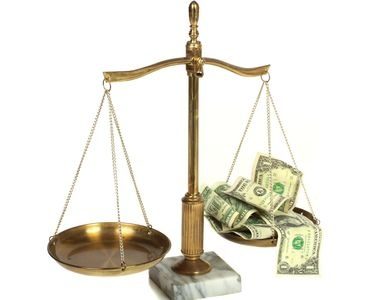“The CAFC explained that ‘[w]hile a district court need not reveal its assessment of every consideration of §285 motions, it must actually assess the totality of the circumstances.’”
 On July 1, the U.S. Court of Appeals for the Federal Circuit (CAFC) vacated and remanded an Attorney Fee Order of the U.S. District Court for the Southern District of Florida denying an award of attorney fees to ShoppersChoice.com. Electronic Communication Technologies, LLC. v. ShoppersChoice.com, LLC. The CAFC held that the District Court erred in failing to consider Electronic Communication Technologies, LLC’s (ECT) manner of litigation and the objective unreasonableness of ECT’s infringement claims, and further held that the court applied the incorrect attorney fee statute.
On July 1, the U.S. Court of Appeals for the Federal Circuit (CAFC) vacated and remanded an Attorney Fee Order of the U.S. District Court for the Southern District of Florida denying an award of attorney fees to ShoppersChoice.com. Electronic Communication Technologies, LLC. v. ShoppersChoice.com, LLC. The CAFC held that the District Court erred in failing to consider Electronic Communication Technologies, LLC’s (ECT) manner of litigation and the objective unreasonableness of ECT’s infringement claims, and further held that the court applied the incorrect attorney fee statute.
In May, the CAFC affirmed the District Court’s grant of summary judgment that claim 11 of U.S. Patent No. 9,373,261 (the ‘261 patent) was invalid under 35 U.S.C. § 101. The ‘261 patent, which is assigned to ECT, is directed to systems and methods for automated computer based notification systems. The District Court found that claim 11 of the ‘261 patent was directed to “the abstract idea of providing advance notification of the pickup or delivery of a mobile thing.” Further, the District Court noted that claim 11 did not include “an inventive concept” and merely recited “generic computer components that can be configured to perform purely conventional computer functions.”
On appeal, the CAFC concluded that claim 11 of the ‘261 patent was ineligible based on the two-step framework of Alice and affirmed the District Court’s judgment. Following the decision on appeal, ShoppersChoice filed a motion for attorney fees with the District Court, wherein it cited evidence “that ECT sent standardized demand letters and filed repeat patent infringement actions for the purpose of obtaining low-value ‘license fees’ and forcing settlements.” Further, ShoppersChoice filed a letter of supplemental authority to inform the District Court of a decision of the U.S. District Court for the Central District of California (“California District Court”) that awarded attorney fees against ECT in another infringement case filed by ECT relating to the ’261 patent, i.e. Kindred Studio Illustration & Design, LLC v. Elec. Commc’n Techs., LLC (True Grit). The District Court denied ShoppersChoice’s motion for attorney fees, noting that the case was not exceptional “[u]nder the Lanham Act.”
Exceptional Case
Back at the CAFC, the Court agreed with ShoppersChoice that the District Court abused its discretion by failing to properly weigh the relevant factors and by applying the incorrect attorney fee statute. Initially, the CAFC noted that the District Court “clearly erred by failing to address ECT’s manner of litigation and the broader context of ECT’s lawsuit against ShoppersChoice.” For example, the CAFC explained that the district court did not properly consider evidence that ECT sent standardized demand letters and filed infringement actions against over 150 defendants between 2011 and 2015. Further, the CAFC noted that ECT’s behaviors of seeking low value settlements and failing to proceed past claim construction hearings indicated “the use of litigation to achieve a quick settlement with no intention of testing the strength of the patent or its allegations of infringement.” The CAFC also noted that the District Court failed to consider the True Grit opinion, which “provided a detailed account of ECT’s practice of seeking nuisance-value license fees.” The CAFC explained that “[w]hile a district court need not reveal its assessment of every consideration of §285 motions, it must actually assess the totality of the circumstances.” Noting that the District Court failed to address “adequate evidence of an abusive pattern” of ECT’s litigation, the CAFC concluded that the District Court failed to conduct an adequate inquiry and, therefore, abused its discretion.
Objective Unreasonableness of Alleged Infringement
The CAFC also noted that the District Court erred by failing to address the objective unreasonableness of ECT’s alleging infringement against ShoppersChoice, particularly in light of prior decisions relating to the ‘261 patent, i.e. True Grit and McKinley. As explained by the CAFC, McKinley was decided two years before ECT filed its Complaint against ShoppersChoice and concluded with the California District Court invalidating “claims of patents in the ‘261 patent’s family as patent ineligible under § 101, finding the claims ‘directed to the abstract idea of asking people, based on their location, to go places[,]’ and implemented with only ‘generic computer[s]’ that did not transform the claims into patent eligible subject matter.” The CAFC further explained that the California District Court in True Grit reasoned that claim 11 of the ‘261 patent “’suffers from the same type of obvious defect’ as the asserted claims in McKinley.” Noting that it was problematic that the District Court failed to consider the opposing conclusions of McKinley and True Grit, the CAFC concluded that the District Court “abused its discretion in weighing relevant factors in its exceptional case analysis.”
Wrong Statute
The Federal Circuit concluded by noting that the District Court incorrectly applied 15 U.S.C. § 1117, which provides for the award of attorney fees in “exceptional cases” concerning trademark violations, rather than 35 U.S.C. § 285, which concerns patent infringement. The CAFC explained that the District Court ultimately applied the correct “exceptional cases” standard but noted that the correct statute should be applied on remand. Based on the foregoing, the CAFC vacated the District Court’s Attorney Fee Order and remanded for further proceedings, wherein the District Court should consider the ECT’s manner of litigation and the objective unreasonableness of ECT’s infringement claims.

![[IPWatchdog Logo]](https://ipwatchdog.com/wp-content/themes/IPWatchdog%20-%202023/assets/images/temp/logo-small@2x.png)

![[Advertisement]](https://ipwatchdog.com/wp-content/uploads/2024/04/Artificial-Intelligence-2024-REPLAY-sidebar-700x500-corrected.jpg)
![[Advertisement]](https://ipwatchdog.com/wp-content/uploads/2024/04/UnitedLex-May-2-2024-sidebar-700x500-1.jpg)
![[Advertisement]](https://ipwatchdog.com/wp-content/uploads/2024/04/Patent-Litigation-Masters-2024-sidebar-700x500-1.jpg)

![[Advertisement]](https://ipwatchdog.com/wp-content/uploads/2021/12/WEBINAR-336-x-280-px.png)
![[Advertisement]](https://ipwatchdog.com/wp-content/uploads/2021/12/2021-Patent-Practice-on-Demand-recorded-Feb-2021-336-x-280.jpg)
![[Advertisement]](https://ipwatchdog.com/wp-content/uploads/2021/12/Ad-4-The-Invent-Patent-System™.png)






Join the Discussion
No comments yet.